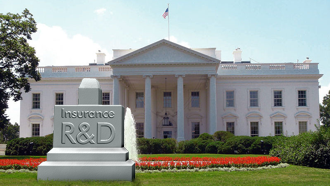Obama's Health Care Reform
Of all the things that President Obama could have chosen to tackle during his first term, he just had to choose health care. Overall my feeling is that Obama has a much broader perspective on America than many political leaders we have ever had—his speech is more reflective than words political leaders usually possess. That is why I am so confused with Obama's obsession with health care reform.
The health care debate in America is banter about a boogie man. It is rooted in an assumption that Americans have but obviously never question: health insurance is a must. That belief is an assumption through and through. Many people hold it tightly close to their chest as a deep conviction; that conviction seems to be growing stronger in the last few years.
 If I ran a health insurance company right now, I would be wringing my hands in anticipation of Congress passing a mandatory health care bill. It would enforce yet one more tax onto the population and divert the revenues to private companies in the same way that auto insurance already does.
If I ran a health insurance company right now, I would be wringing my hands in anticipation of Congress passing a mandatory health care bill. It would enforce yet one more tax onto the population and divert the revenues to private companies in the same way that auto insurance already does.
Unfortunately, big policy changes are influenced by the powers that have the most to gain or lose. Obama may have good intentions when saying that all Americans deserve health care. In the end, however, I think his efforts are going to back fire. More Americans will find themselves burdened with extra financial responsibilities; big industry will find ways to scavenge off the policy and public.
Staying healthy is a personal responsibility of each person. The government is not responsible to cover the cost of keeping Americans healthy.
In respect to providing health care, however, we all benefit from having hospitals and doctors in our vicinity. The problems in the cost of health care is that finite prices are put onto services that cannot have an objective value. What is the actual value of a heart transplant. On a personal level, the value is infinite. At the same time, the value to the public is based on the value/productivity of the patient towards society. An unfettered idealism is the only reason that we say all should be entitled to that service; and if we are all entitled to that service—who is to say how much it is worth monetarily? Capitalistic thinking, of course, drives this cost up because it has such a demand (due to each of us having an over-inflated view of our own values). Mix that with the insurance industry's effect of driving costs up overall (by making expensive services more accessible even if prices rise higher—by spreading the cost around) and you create a run away effect in cost based on idealism, insurance feedback and greed.
A realistic approach is more like this: eat better; exercise more; educate yourself; hope for the best. Notice that this giant dilemma we are all up in arms about didn't really exist throughout all of history until the very recent past. I have a hunch that the murmur for this in public literature has a strong correlation to the profits and size of the insurance industry.
Please, Mr. Obama, rethink the necessity of taxing the American public and sending the money to the insurance industry.
- Insurance
Skeptical essays about the insurance industry.
- Insurance Fraud: The True Story
- The Big Insurance Scam
- Obama's Health Care Reform
- Related Topics





mmm
Apr 24, 2012
Reply
Killer Monkey
Dec 12, 2010
Reply
Shawn Olson
Dec 13, 2010
Reply
David Schirtzinger
Dec 2, 2010
Reply
Mark Matheny
Jul 2, 2010
Reply